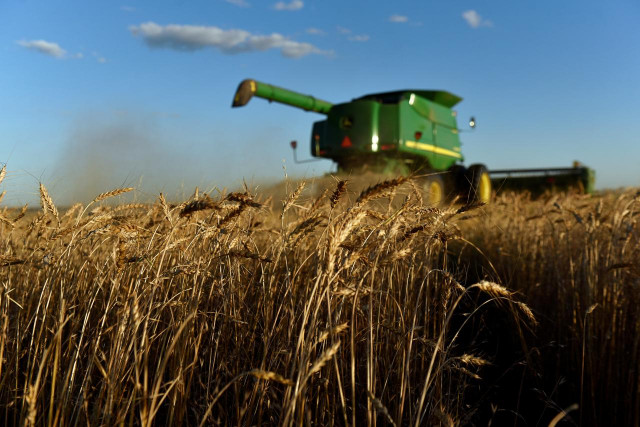Pakistan looks for Chinese help in corporate farming
Green revolution can be brought with Chinese cooperation, cabinet told

Pakistan is seeking support of China for corporate farming through the inclusion of agriculture in the China-Pakistan Economic Corridor (CPEC) programme in the hope of triggering a green revolution.
In a recent meeting of the cabinet, its members expressed satisfaction over the inclusion of agriculture as well as science and technology in the CPEC programme. It was emphasised that Pakistan’s economic development was intertwined with that of China and a green revolution would come in cooperation with Beijing.
It was pointed out that in the agriculture sector, support was being sought for corporate farming as well as joint farming. It was suggested that joint research should be undertaken in the field of agriculture as Pakistan had the research infrastructure, which had the potential to become a centre of excellence.
The minister for national food security and research told the cabinet that his team was working on raising wheat productivity for which timely announcement of support price and availability of quality seed was crucial.
He requested the prime minister to direct provinces to keep an appropriate quantity of good quality wheat, which would be used as seed.
The prime minister directed the food security minister to prepare short, medium and long-term plans for achieving food security and enhancing crop productivity.
The National Food Security and Research Division informed cabinet members that in September, around 0.5 million tons of imported wheat would be available in the country. It was stated that steps taken by the government had resulted in a reduction in wheat prices. It was pointed out that the transportation cycle should be astutely managed as with the sudden influx of imported wheat, the cost of carriage could increase.
It was also suggested that after the 18th Constitution Amendment, the prime responsibility of the Ministry of National Food Security was to ensure food security for which buffer stocks of essential commodities over and above the annual national demand should be maintained for supply-side intervention to keep prices in check.
The prime minister emphasised that shortage of wheat could not be allowed in the country in any circumstances as it was a staple diet of the common man. The minister for communication requested the cabinet that financing for the Zhob road project, approved in the last Joint Cooperation Committee (JCC) meeting, may also be taken up with the Chinese side as it was the main entry point to the western route.
The minister for industries and production apprised cabinet members that prices of sugar had already gone down by Rs4-5 per kg on expectations of arrival of imported sugar ordered by the private sector.
Published in The Express Tribune, September 8th, 2020.
Like Business on Facebook, follow @TribuneBiz on Twitter to stay informed and join in the conversation.



















COMMENTS
Comments are moderated and generally will be posted if they are on-topic and not abusive.
For more information, please see our Comments FAQ